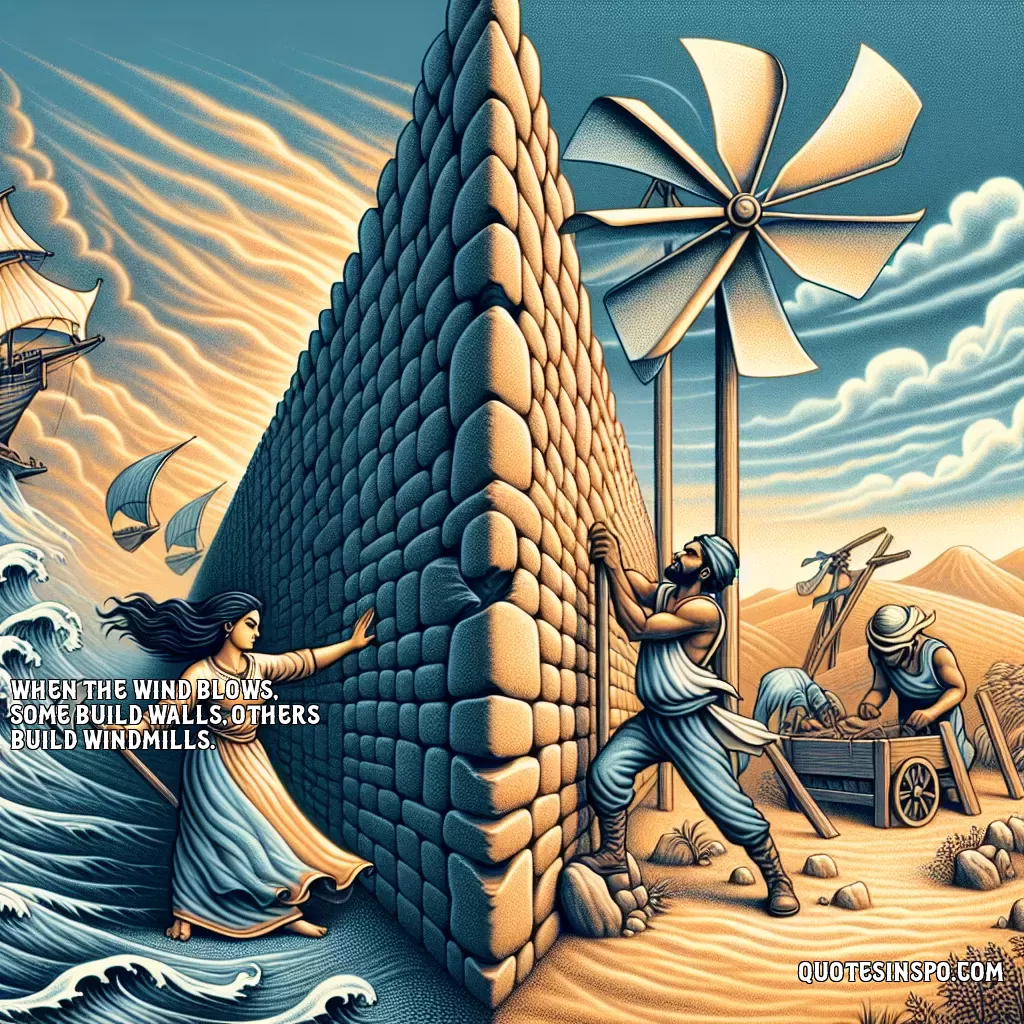
When the wind blows, some build walls, others build windmills.
The quote, "When the wind blows, some build walls, others build windmills," serves as a metaphor to describe human attitudes toward challenges and opportunities. Fundamentally, the quote underscores the different ways individuals or societies can react to change, adversity, or potential. On one hand, the "walls" represent a defensive or resistant approach. People who build walls in response to the wind aim to shield themselves from the uncertainties or perceived threats. This approach reflects a mindset that views change as something to be feared or avoided. The wall builders prioritize stability and security, and their instinct is to maintain the status quo by insulating themselves from external forces. This can sometimes be necessary, as protection is crucial in certain contexts, but it also suggests a limitation in embracing new possibilities. On the other hand, the "windmills" symbolize an adaptive and proactive attitude. Those who build windmills perceive the wind, or change, not as an obstacle, but as an opportunity to harness and benefit from. They seek to utilize the forces of change to generate positive outcomes, much like windmills convert wind into energy. This mindset reflects an openness to innovation and growth, as windmill builders are willing to transform adversity into a source of strength and advancement. Overall, the quote encourages embracing change, suggesting that adapting and leveraging challenges can lead to progress and new opportunities. It challenges individuals to reflect on their responses to change, encouraging transformative thinking that can lead to creative and constructive solutions.
Quote By: Chinese Proverb
Chinese proverbs are traditional sayings that encapsulate wisdom, cultural values, and practical life lessons, reflecting the rich history and philosophies of China. Often rooted in the teachings of Confucianism, Daoism, and Buddhism, these proverbs have been passed down through generations, serving as guiding principles in everyday life. Their concise yet profound nature allows them to convey complex ideas, making them a cherished part of Chinese language and culture.
Bio added on: 2025-03-14 08:07:20